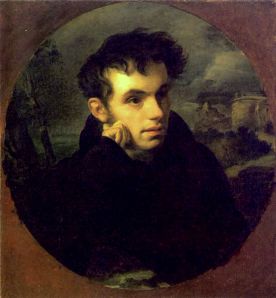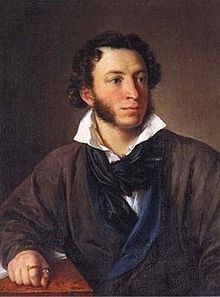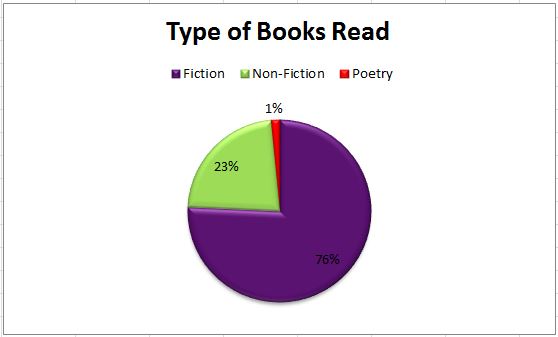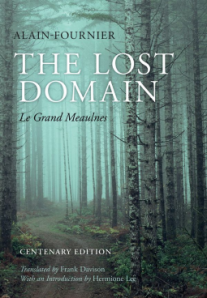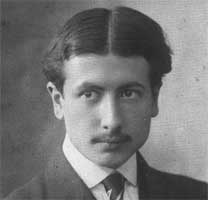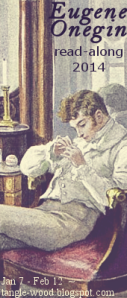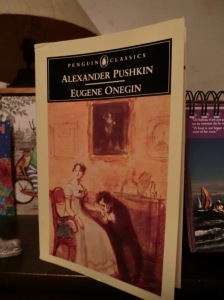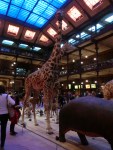O, never know these frightful dreams,
thou, my Svetlana!
VASILY ZHUKOVSKY
Reading the epigram above and looking into its source, I discover how little I really know about this poem, because of my ignorance of Russian poets and folklore, for Vasily Zhukovsky, a prominent figure in Russian literature in the 1800’s and tutor to a Duchess and her son, the future Tsar-Liberator Alexander II, was highly esteemed by Pushkin. His heroine Tatyana is modelled in some way on the heroine Svetlana in Zhukovsky’s poem of the same name, where there are dreams of snowy nights, a hovel and a corpse who manifests into her beloved, just as there are in Chapter 5 of Pushkin’s poem.
Chapter Five
Tatyana, who is prone to superstition and susceptible to clairvoyance, is plagued by dreams, of a snowstorm and a large bear stalking her, she can’t escape the sense of being pursued and will be taken by the bear to a gathering in a hovel, where she is reunited with her love Eugene Onegin, who feasts with bizarre creatures. Her happiness is short-lived as he embarrasses her in front of the audience gathered, only to claim her like a worthy hero, making her swoon in quickly forgiven ecstasy.
Tatyana is troubled by her dream and won’t speak of it to her sister, instead she descends into the safe passages of a book, with their trustworthy, predictable heroes.
January 25, her name day arrives and the mood changes as friends, family, neighbours, the local army Major and more descend upon the Larin household and word has it the regimental band is coming!
Dinner is served amid much excitement and the merriment rises in volume when the doors open to admit the latecomers Lensky the poet and his friend Eugene Onegin. Finally! Seated opposite Tatyana, who becomes a bundle of nerves, our hero isn’t impressed with her lovesick feminine display and mentally passes judgement on them all. I ask myself, is the man a psychopath, he displays zero empathy!
Fortunately no one notices, the gluttons, as more food arrives and flutes for champagne and cries of ‘Speech’ to toast the beautiful Tatyana who pulls herself together to respond to each guest individually, stumbling when she reaches Eugene, who seems to take pity, for his face shows something she interprets as tenderness – more fool her!
They move to the salon, tea and cards and the sound of the band arriving, the ball is underway, the Russian Waltz on display! And now the trouble starts as Eugene claims Olga, shocking the crowd in their stomping frenzy and outraging his friend! What is he up to this player of dangerous games! How will Lensky react?
He finds the shock beyond all bearing;
so, cursing women’s devious course,
he leaves the house, calls for his horse
and gallops. Pistols made for pairing
and just a double charge of shot
will in a flash decide his lot.
Chapter Six
Seeing his friend depart, Eugene becomes bored with his game and will leave alone. While bodies sprawl everywhere in sleep, Tatyana sits at her window and peers into the darkness, a coldness creeping over her heart.
We meet another landowner with a shady past, who delivers a message to Eugene, a letter from his friend Lensky, challenging him to a duel. He accepts, this manly hero, though on his own he laments his role.
With reason, too: for when he’d vetted
in secret judgement what he’d done,
he found too much that he regretted:
last night he’d erred in making fun,
so heartless and so detrimental,
of love so timorous and gentle.
Lensky wakes in anger like a raging bull intent on not seeing his love, but relents and is confused to find her as much in love as she ever was, his anger abates and he regrets his haste, but wants to teach his friend a lesson. No one spares a thought for our heroine. Lensky cleans his pistols and spends all night writing his last poem.
How did these two friends becomes foes and what madness have they entered into, to continue this game of death. Pistols ready, they march, they turn, a shot. Our poet holds his hand to his heart, inspired right up to his last seconds in this world, he departs.
Reader, whatever fate’s direction,
we weep for the young lover’s end,
the man of reveries and reflection,
the poet struck down by his friend!
Even the narrator stalls, he can not go on, he needs to pause. He will come back and tell us what will happen when he can face it.
Reactions
Since Tatyana and her sister rarely speak, the dream sequence helps us understand her state of mind, her fears and desires, her confusion and unwillingness to share it with anyone. It is like a premonition of what will come, the roller coaster of highs and lows on her name day, where even then the only high note she experiences in relation to her beloved is a look on his face that may or may not have been tenderness.
My opinion of Eugene Onegin has not changed, he has not a shed of empathy, neither for Tatyana or ever more tragically for his dear friend, the poet Lensky. How will he redeem himself from this pistol waving mess!
And the Narrator? I recall that this poem was written over several years and when the Narrator interjects and seems to need to pause, I find myself wondering if these pauses represent the intervening years. No doubt some scholar has the answer.
Brilliant. Loving this!
Click here to read the final follow up review of Eugene Onegin Chapters 7 & 8


